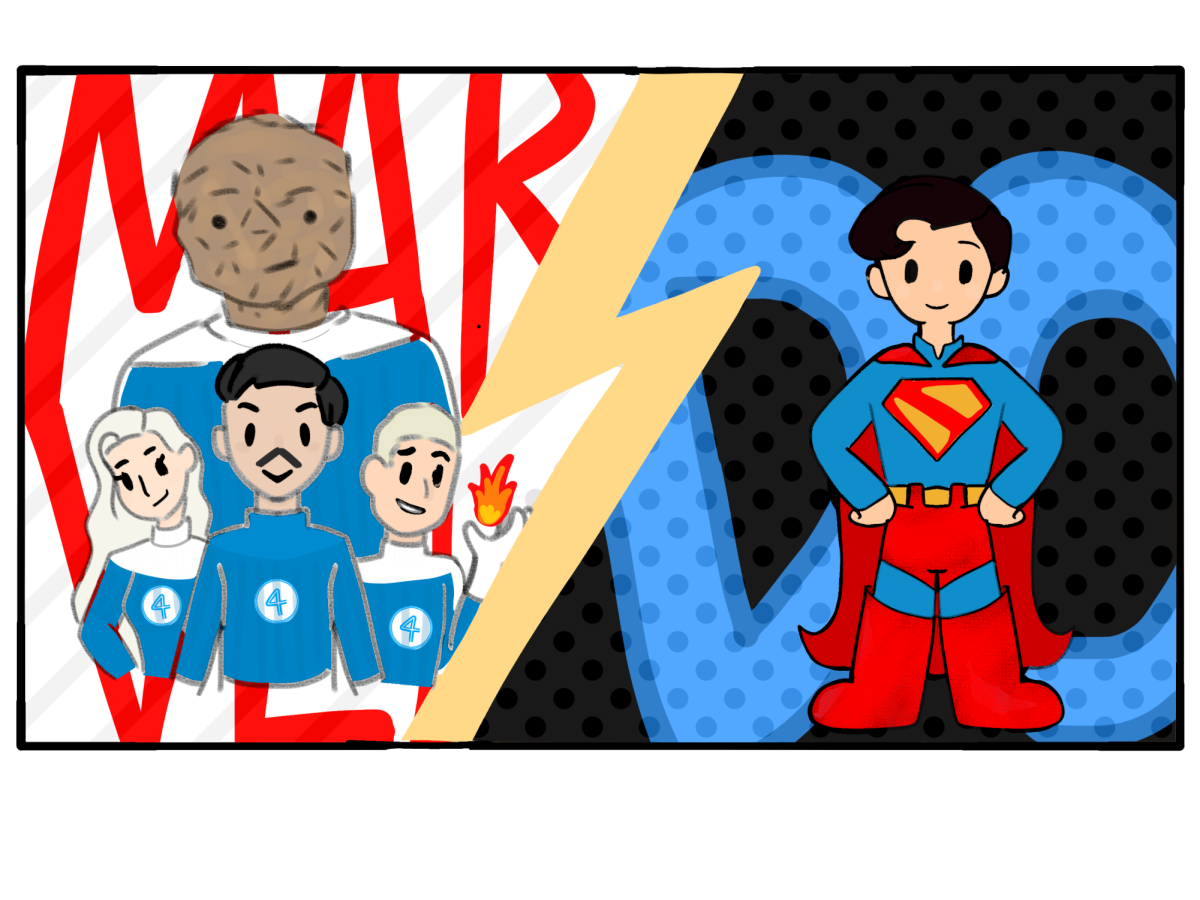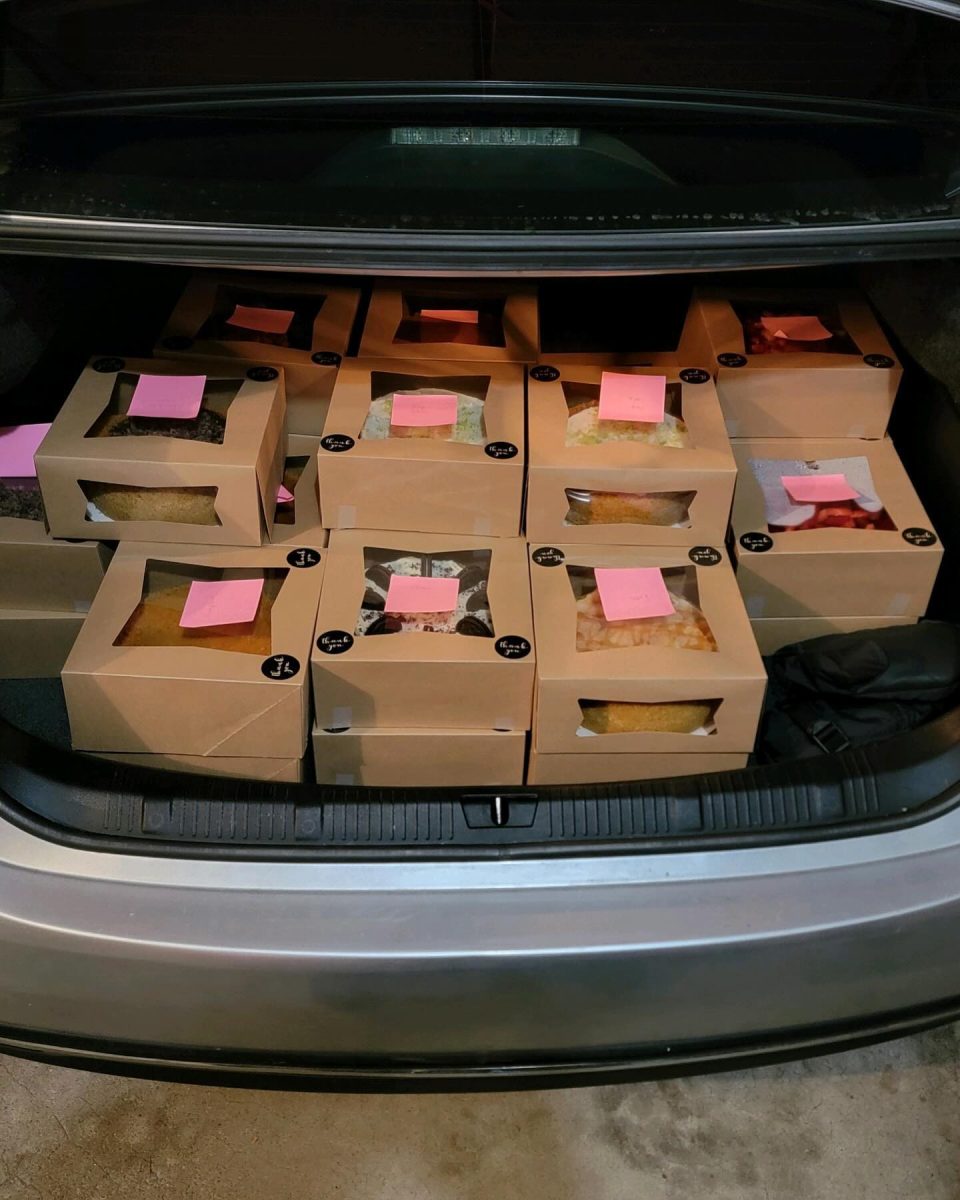Having a business while trying to balance the academic rigor of Hill is a challenging feat. Yet, some students are able to pull it off. The majority of these students seem to be day students.
Oftentimes, many of these day student businesses rely on something they have at home in order to function. A perfect example of this would be Jaelen Toole’s ’25 cheesecake business.
Toole is a former day student who now serves as a prefect on the second floor of Wendell dormitory. His passion for baking and inspiration from his dad initially drove him to start his business. “I’ve always watched my dad bake—he loves to bake, he loves to cook,” Toole said.
Inspired by his dad’s cooking, Toole entered Kitcken Kapers his schools baking contest, which he won. However, this victory was short-lived as Toole faced difficulty at the state level and could not advance. While Toole was disappointed, this also led to his first sale.
“After I found out I didn’t go through to the states, my barber heard me and my dad talking about it, and he wanted to buy one off me.,” Toole said. “That kind of kickstarted it.” His first cheesecake sold for $20, but now they sell for over $40.
As Toole expanded his business, Hill played a significant role in supporting it. “It’s basically just word of mouth that keeps it going,” Toole said.
This expansion brought with it rigorous work, often requiring Toole to stay up long hours.
“I would stay up until 3 a.m.putting them in the fridge, and then I’d wake up at 6 a.m. and make 12 a day.”
Toole’s business was very successful, “I sold over a hundred cheesecakes in a matter of two months”said Toole. However his success would not be possible to replicate as a four-year boarder. Toole made many of his cheesecakes over break or on the weekends, but he always made them at home, stating, “I have been making them in my house for almost five years. It’s kind of where I see myself making them.” Without the home environment Toole would not have been able to make his cheese cakes.
Nash Basil ’25, a prefect in Foster dormitory, tour guide, and cross-country athlete, is another student who runs his own business. Similar to Toole, Nash Basil was a day student for three years before transitioning to boarding in his 6th form year. Nash Basil’s passion for mowing lawns sparked his business, Blackwood Outdoor Services.
“I started mowing grass when I was about 10 years old,” Nash Basile said. “My dad taught me how to use our lawn mower, and I really enjoyed it.”
He started off mowing grass for his family and relatives, then began to branch out into his neighborhood. With the help of advertising, Nash Basil’s business started to expand. With that expansion came the addition of services besides lawn mowing, such as snow plowing and landscaping.
As Nash Basil’s business requires intense labor, he works mainly on the weekends to give himself the time to balance school and work.
“I have to balance the time that I spend working on my business as well as the time I spend on academics,” states Nash Basil.
While Hill’s rigorous schedule made it difficult for Nash Basil to balance both school and work, Hill has also provided him with valuable knowledge.
“I definitely got some knowledge from people that I met at Hill about running businesses, especially through the entrepreneurship club.”
In both Toole’s and Nash Basil’s businesses, Hill has provided them with valuable information and clients. However, both Basil and Toole agree that their businesses depended on the freedom and accessibility that day students have.
Similarly, Ayaan Rega ’26, owner of ScrubClubCleaning, a mobile car washing service, agreed that his business would not have been possible as a boarder. Together, Rega and Jake Sprague ‘26 wash, scrub, and clean cars. Their business started with the identification of a problem in their neighborhood.
“We found that there were a lot of elderly people in our area, and for them, going to a car wash and getting their car cleaned is not necessarily feasible, nor is it very cheap.”
Taking advantage of this opportunity, Rega and Sprague jumped at the chance to fill this gap. They created a car-washing business that goes around to client’s houses and washes their cars.
Rega and Sprague’s business relies on the ability to travel efficiently from house to house, serving each of their clients. Ayaan agrees that this would not be possible as a boarder. “I don’t necessarily think this would be possible if we were both boarding students, just because of the complexities that come with transportation”
However, an optimistic Hill graduate, Anthony Basil ’23, believed he would have been able to recreate his business while boarding at Hill. Anthony Basil ran a successful business called Bummy Balls. His business took advantage of his backyard, which was adjacent to a golf course. This positioning often caused golf balls to land in his backyard. Seeing an opportunity, Anthony Basil collected these golf balls, packaged them up, and shipped them off.
Anthony Basil was a day student for three years before transitioning to boarding during his 4th form year. In that switch, many of his priorities shifted.
Once focused on his business, Anthony Basil now put much of his effort toward college admissions. While this shift seems to correlate with a stop in business, Anthony Basil strongly states that it is not the case. In fact, he believed that if he had attended Hill as a boarder all four years, he still would have been able to run his business successfully.
“I think coming into Hill, I could have taken measures to, when I started boarding, to keep running the company,” said Anthony Basil.
Anthony Basil was confident that being a boarder would not have capped his ability to run his business. However, he did acknowledge that this may only have been possible because of his close proximity to Hill.
“I say I could because I still lived in close proximity,” Anthony Basil said.
While he believed it would have been possible for him, he recognized that students who live farther away would struggle with running a business that requires physical work, such as collecting, bagging, and shipping golf balls.
Managing a student business while keeping up with Hill’s academics is difficult, however, certain students have found ways to make it work. Whether it’s baking cheesecakes, mowing lawns, washing cars, or selling golf balls, their success often comes down to the flexibility of being a day student. While boarding presents challenges, some students like Anthony Basil believe it’s still possible to keep a business running with the right adjustments.
Although it may be easier for day students, Nash Basil encourages anyone interested in entrepreneurship to try it.
“I would say anybody who wants to start an entrepreneurial endeavor should definitely go forward with it because, over the past two years, I’ve learned so much,” Nash Basile said.























